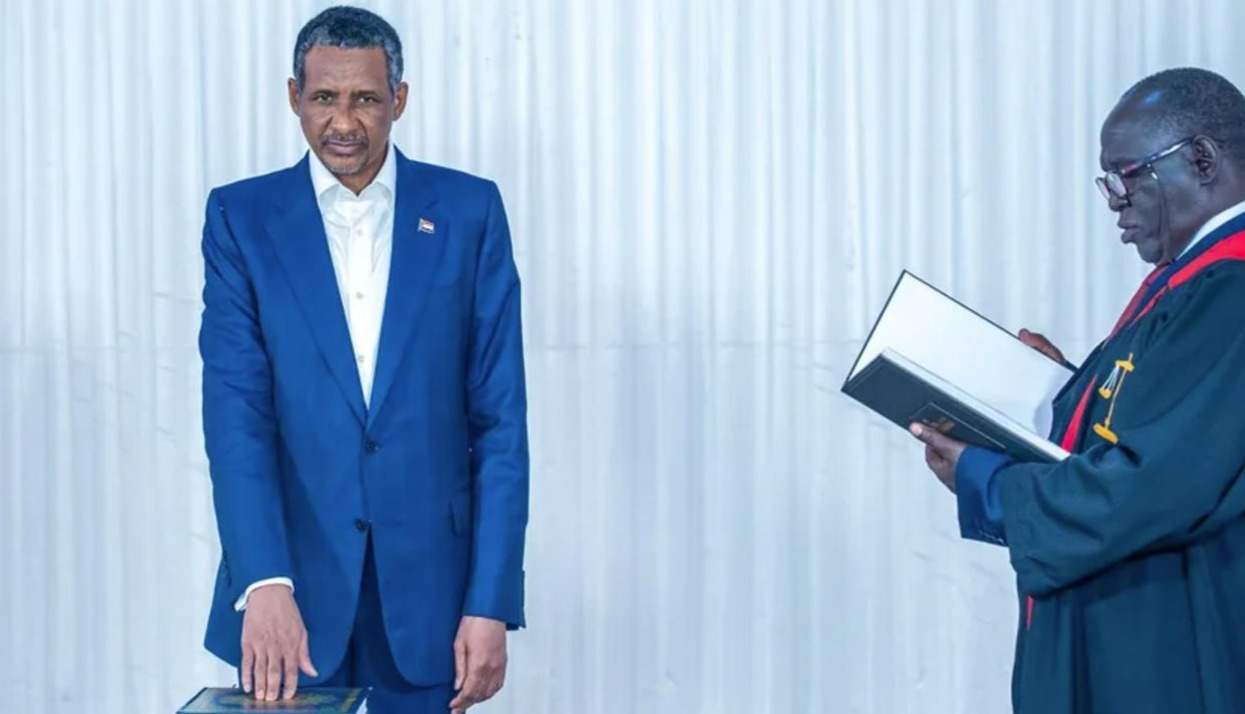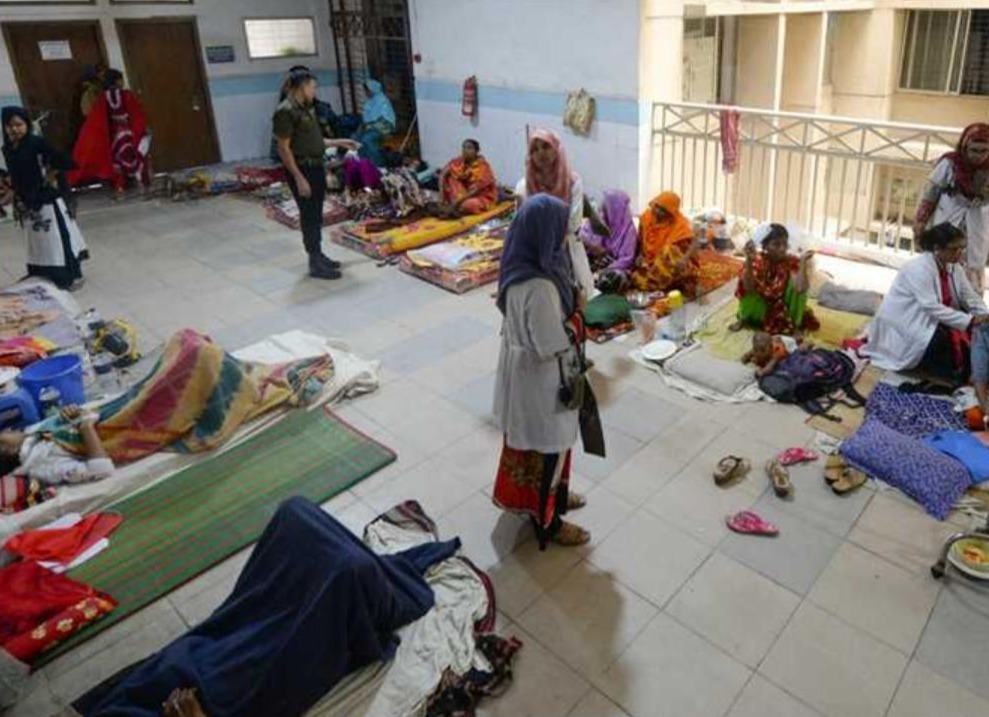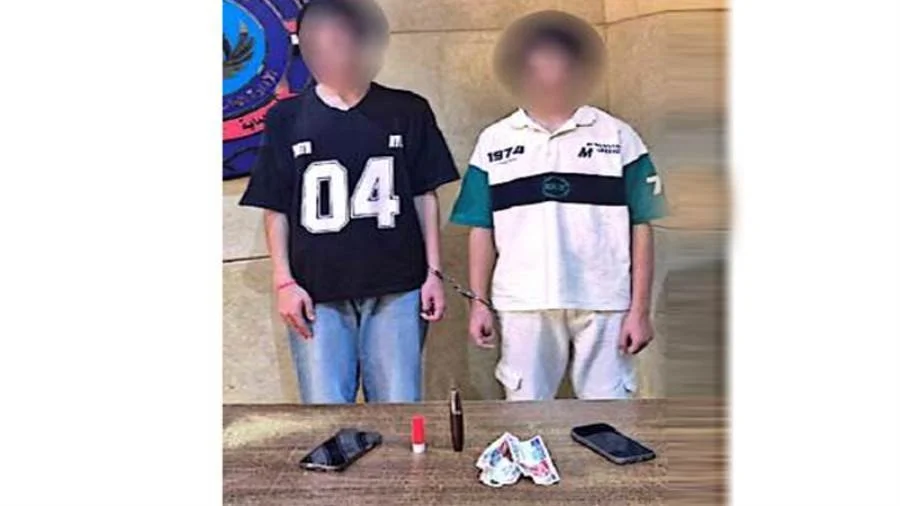August 2025
In this Newsletter:
Egypt’s security crackdown widens to target digital platforms.
Cholera outbreak in Kadugli shuts down hospitals and claims the lives of 7 citizens.
Lina Attalah, editor-in-chief of Mada Masr, summoned to the State Security Prosecution.
Hemedti sworn in as president of the parallel government’s presidential council.
Five deaths inside detention centers in Egypt.
After two years of war, the Sudanese government returns to Khartoum as dengue fever sweeps through the capital.
A report by the Refugee Platform in Egypt reveals the collapse of the refugee system in Egypt.
Content creators arrested and prosecuted under ‘debauchery’ charges.
Egypt’s security crackdown widens to target digital platforms
Since August 2025, Egypt has witnessed the broadest security campaign against female content creators since 2020. In a televised interview with broadcaster Ahmed Moussa, Ahmed Badawi, head of the Communications Committee in Parliament, announced that the campaign is ongoing and has been expanded to include users of Facebook and Twitter/X who write or comment using what were described as “offensive” terms, claiming the aim is to “protect the Egyptian family.”
Badawi confirmed that his committee cooperated with the government in preparing the lists of those targeted by the campaign, noting that the committee’s role was not limited to legislation but also extended to monitoring and tracking content. He added that the enforcement of the Cybercrime Law now covers multiple platforms, whereas previously the focus had been mainly on TikTok.
The role of parliament and turning oversight into punishment
Badawi stressed that the campaign is not “surveillance” but “deterrence.” However, the reality reveals that some MPs are directly involved in monitoring and preparing target lists, effectively making parliament part of the security apparatus rather than an oversight body over it.
Badawi also criticized what he described as “sympathy for those arrested,” asserting that the measures taken by the Ministry of Interior and the Supreme Council for Media Regulation deserve praise, and claiming that the campaign has not—according to him—witnessed any violations of societal values.
Towards legislation on artificial intelligence
In the same context, Badawi revealed that the committee has completed 70% of drafting a new law on artificial intelligence in cooperation with the government, explaining that it will focus on “supporting positives and confronting negatives,” and is scheduled to be presented for discussion in the coming weeks.
Cholera outbreak in Kadugli shuts down hospitals and claims the lives of 7 citizens
Over 50,000 cholera infections and 1,000 deaths have been recorded in Sudan since the beginning of this year, as the epidemic spreads across Kadugli and all Sudanese states in the wake of the total collapse of the country’s health system.
Blockade and neglect fueling the catastrophe
The collapse of Sudan’s healthcare infrastructure is the direct result of the military sieges imposed on conflict zones by both warring parties. These blockades prevent the movement of civilians, goods, and humanitarian aid in and out of besieged areas. As a consequence, famine has deepened in several regions, and civilians trapped in multiple frontlines across Sudan have been left without support or medical care. People are forced to fend for themselves, securing food, water, and basic health services under impossible conditions. With no access to clean water, communities have no choice but to drink untreated sources, leading to the rapid spread of cholera.
Prevention and treatment: a simple solution denied
Cholera is a preventable disease, one that can be stopped through low-cost methods such as boiling water or using chlorine tablets. Yet, deliberate neglect has transformed it into a mass tragedy. Civilians under siege cannot access fuel or gas needed to boil water, while warring forces continue to block the entry of life-saving medical supplies. In effect, Sudanese civilians are stripped of the most basic means of prevention and treatment, left to die between the gears of a war that spares neither body nor community.
Lina Attalah, editor-in-chief of Mada Masr, summoned to the State Security Prosecution
On August 4, 2025, Egypt’s Supreme State Security Prosecution summoned Lina Attalah, editor-in-chief of the independent news outlet Mada Masr, for interrogation without clarifying the charges. The summons came just two days after Mada Masr published an investigative report on prison conditions in Badr 3.
The Badr 3 report and Ministry of Interior statements
The report included a leaked letter from former Alexandria governor Hassan El-Brens, detained in Badr 3, in which he complained of widespread abuses against himself and other prisoners. Families of several Muslim Brotherhood leaders held in Sector 2 of Badr 3 also announced that their relatives had begun an open-ended hunger strike in protest of deteriorating conditions and ongoing violations.
Following this, the Ministry of Interior issued two statements dismissing the leaked letter as fabricated and denying the existence of a hunger strike. The ministry further announced that it would take legal action against those it accused of spreading “false claims.”
Interrogation and charges
Attalah was charged in Case No. 2182 of 2025 with “operating a website without a license” and “publishing false news with the intent of destabilizing the state.” During the interrogation, prosecutors refused to allow journalist Iman Ouf to attend in her capacity as a representative of the Press Syndicate, a clear violation of Attalah’s right to professional and union representation. This incident reflects an alarming trend of curtailing the role of professional syndicates, particularly in defending press freedom. Attalah was later released on bail of 30,000 Egyptian pounds.
A recurring accusation
The charge of “operating a website without a license” has become a repeated accusation against Attalah. Over the past two years, she has been summoned by the Supreme State Security Prosecution several times on the same grounds, despite Mada Masr’s pending legal appeal against the Supreme Council for Media Regulation’s refusal to grant the outlet a license to operate as a news website.
It is also worth noting that Mada Masr has been blocked in Egypt since the council’s 2023 decision to restrict its access.
Hemedti sworn in as president of the parallel government’s presidential council
The “Ta’sis” alliance has announced the appointment of Rapid Support Forces (RSF) commander Mohamed Hamdan Dagalo (Hemedti) as head of a newly formed Presidential Council tasked with leading Sudan’s transitional period.
The question of legitimacy amid popular marginalization
This announcement adds yet another layer of complexity to Sudan’s fractured political landscape, already divided between competing de facto authorities and ongoing disputes over legitimacy. While the alliance attempts to present this move as a step toward decentralization and civilian governance, it in fact exposes the recycling of military elites—albeit non-state ones—who have long entrenched wars and excluded the Sudanese people from genuine participation in shaping their future.
Reproducing Libya’s “parallel government” scenario
The creation of this new council risks entrenching a prolonged conflict and undermining the possibility of a single, nationally recognized government representing all Sudanese across the country. It echoes the Libyan experience, where rival governments both claim legitimacy, fueling instability. This development also comes amid accusations from Sudan’s Sovereignty Council, led by Abdel Fattah al-Burhan, that the United Arab Emirates is backing the RSF. Reports further suggest operational coordination between Hemedti in Sudan and Khalifa Haftar in Libya—himself closely linked to Emirati involvement in the Libyan conflict.
Regional and international rejection
Regional and international institutions have already signaled their rejection of this new authority, recognizing its potential to fracture Sudan’s unity further. Yet the greatest danger lies in its impact on Sudan’s most vulnerable and marginalized communities, who remain caught between rival authorities deploying the rhetoric of “civilian rule” without guaranteeing comprehensive human rights. The absence of genuine representation and equality deepens the risks these communities face, leaving them exposed to systemic marginalization and violence under the militarization of politics and the politicization of justice.
Five deaths inside detention centers in Egypt
In August 2025 alone, five people died inside detention facilities across Egypt, raising urgent questions about the respect for detainees’ basic rights.
Why was he not held in hospital?
The incidents began with the deaths of two men inside the Manshiya Police Station in Alexandria: Ramadan El-Sayed Hassan (known as Islam) and Mohamed Ahmed Saad (known as El-Sawy), both from the Bahari district. They died on August 16, 2025. According to lawyer Mohamed Ramadan, overcrowding and extreme heat in the holding cells led to their deaths.
When El-Sawy’s condition deteriorated, fellow detainees pleaded with police to transfer him to a hospital. Authorities eventually relented and moved him to Ras El-Tin General Hospital, only to return him to the police station soon after. This happened twice, despite his worsening condition, until he died in custody. Ramadan stressed that El-Sawy’s condition required hospital care but added: “The Interior Ministry always hesitates to keep detainees in hospitals because it requires guards, so they send them back to the station instead.”
Arresting the brother and torture allegations
The second victim at the same station had been arrested in place of his brother, who was accused of defrauding a prominent political family in Alexandria. According to a family source cited by Mada Masr, when police failed to locate the accused, they arrested his brother instead and tortured him to death in custody.
In Qalyubia governorate, the family of Walid Ahmed Taha accused the Interior Ministry of responsibility for his death in Shubra El-Kheima Police Station. According to a Facebook post by his brother, Taha—a bank employee—was detained for eight days following a dispute with a neighbor who had shot him. Though police filed a report, Taha faced pressure to drop the case because the neighbor’s brother was a police officer. When he refused, prosecutors ordered him held for four days, later extended to 15, while denying family visits. His relatives were eventually informed of his death, despite his having no prior health conditions. His brother added that police refused to file a report acknowledging possible foul play.
Denials from the Interior Ministry without investigation
These deaths coincided with a Ministry of Interior statement denying that a detainee had died from torture. The ministry claimed the man died on August 13 after a fight with three inmates, stating he “felt unwell, was transferred to hospital, and died there.” The statement further accused the “terrorist Muslim Brotherhood” of fabricating rumors to cause unrest.
These incidents reveal a pattern of systematic violence in detention facilities—often ignored by the Public Prosecution—that security forces use both to extract confessions and to punish or intimidate detainees. Detention, in practice, becomes punishment itself. Meanwhile, the Interior Ministry continues issuing blanket denials without initiating serious investigations into deaths or abuse complaints.
Protecting dignity is protecting society
Safeguarding the dignity and physical integrity of all individuals—including those accused of crimes—is the cornerstone of justice and citizenship. Violating this principle not only endangers detainees’ lives but also undermines the security of society as a whole. People may be held in police stations for less than 24 hours under the pretext of “security checks,” yet even in this brief period, violence and abuse are routinely inflicted on detainees.
After two years of war, the Sudanese government returns to Khartoum as dengue fever sweeps through the capital
Since the outbreak of war in Sudan on April 15, 2023, the capital Khartoum has been one of the first and fiercest battlegrounds between the Sudanese Armed Forces and the Rapid Support Forces (RSF). The Sudanese government relocated to Port Sudan at the onset of the conflict, but following recent developments and the army’s consolidation of control over the capital, the first cabinet meeting in two years was held in Khartoum on August 28.
Returning to a capital ravaged by war
The cabinet’s return to Khartoum after two years of RSF dominance reflects a political shift in the balance of power. Yet this symbolic move does little to obscure the reality of a devastated capital, plagued by outbreaks of dengue fever, nor does it alleviate the suffering of millions displaced by the war. While the government seeks to reclaim legitimacy through economic initiatives such as establishing a gold exchange, these efforts expose the contours of an ongoing “economic war” that is deepening Sudan’s regional isolation and setting it on a collision course with supposed allies.
A return to Khartoum does not resolve Sudan’s wider crises
In Darfur, the humanitarian catastrophe continues unabated. Thousands of children in El-Fasher face acute malnutrition under a suffocating siege, while dozens of women and children are killed daily by bombardments and the absence of aid. RSF forces are carrying out kidnappings and sexual assaults against women in displacement camps, laying bare the violent militarization of society where women’s bodies become sites of domination and abuse.
Alongside these atrocities, marginalized groups—particularly gender and sexual minorities—remain in an even more precarious position. In an environment rife with discrimination, stigma, and systemic violence, their vulnerability is compounded, leaving them without protection or support.
The overall picture does not suggest a return to “civilian rule.” Instead, it points to the continuation of a conflict-driven system that legitimizes killing and starvation while excluding the most vulnerable from any horizon of protection or justice.
A report by the Refugee Platform in Egypt reveals the collapse of the refugee system in Egypt
A joint report by Refugees Platform in Egypt (RPE) and the Egyptian Initiative for Personal Rights (EIPR) exposes the collapse of Egypt’s refugee protection system, highlighting how state policies have shifted toward systematic patterns of mass arrests, raids, detention, and forced deportations of tens of thousands—including refugees registered with UNHCR.
The Sudan exodus: when everything changed
The report stresses that these violations—escalating since 2023 with the influx of Sudanese fleeing the war—constitute a blatant breach of the principle of non-refoulement. They have been accompanied by the confiscation of official documents, the separation of families, and the use of so-called “voluntary return” as a cover for deportation.
Since the outbreak of war in Sudan in 2023, nearly one million Sudanese people have fled to Egypt seeking safety. This prompted the Egyptian government to impose restrictive measures, such as suspending the “Four Freedoms Agreement” (which had guaranteed free movement between Egypt and Sudan) and requiring Sudanese men and women aged 18 to 60 to obtain security permits in order to enter Egypt through border crossings.
Egypt’s new asylum law
The report also warns of the dangers posed by Egypt’s new Asylum Law No. 164 of 2024, which grants authorities sweeping powers to deport refugees and makes access to protection and legal residency nearly impossible. Since UNHCR’s establishment in Egypt, it has been the sole body mandated to handle refugee matters. However, since last year, responsibility has been shifted to a government authority under the new law—further obstructing pathways to refugee status determination and undermining protection and assistance available to asylum seekers in Egypt.
UNHCR’s silence and international complicity
The report further criticizes UNHCR for its silence and highlights the European Union’s support for the Egyptian government without attaching clear conditions related to refugee protection.
It concludes with recommendations including: halting forced deportations, releasing those arbitrarily detained, suspending and revising the new law in line with international standards, and guaranteeing refugees’ right to registration and legal residency.
Content creators arrested and prosecuted under ‘debauchery’ charges
The official page of the Ministry of Interior announced the arrest of content creators in Cairo for filming videos described as “indecent.”
According to the announcement, the content creators were monitored by the General Department for the Protection of Public Morals. Investigations revealed that they recorded and published clips described in the statement as “contrary to public morals and an assault on societal values.”
The Charges
They were arrested and charged with filming videos contrary to public morals, representing an assault on societal values, and broadcasting them on social media platforms. They were also accused of engaging in acts of immorality in exchange for money.
What “immorality” means
Egyptian law does not explicitly criminalize homosexuality. Instead, authorities rely on Law No. 10 of 1961 and its amendments concerning the prevention of commercial sex work to prosecute individuals from LGBTQ+ communities in Egypt. The law stipulates punishment for “anyone who incites a person, male or female, to commit immorality or prostitution, assists them in it, facilitates it for them, or uses, lures, or seduces them with the intent of committing immorality or prostitution.” Egyptian courts have tended to interpret the term “immorality” as referring to same-sex relations.
This law and its vague terminology, which does not clearly define what constitutes an act of immorality or what counts as incitement or facilitation of immorality, give investigative authorities and judges broad discretion to punish any act or expression they consider atypical and therefore “immoral.”
Is this the start of a new wave of arrests?
This case comes amid a wave that began in early August targeting content creators on TikTok with various accusations, including producing content that allegedly undermines Egyptian family values, profiteering, money laundering, and other charges. This may indicate that the current case could be a sign of increased monitoring and tracking of individuals from sexual and gender minority communities who produce content—not only related to LGBTQ+ issues but also content expressing their gender identities.








